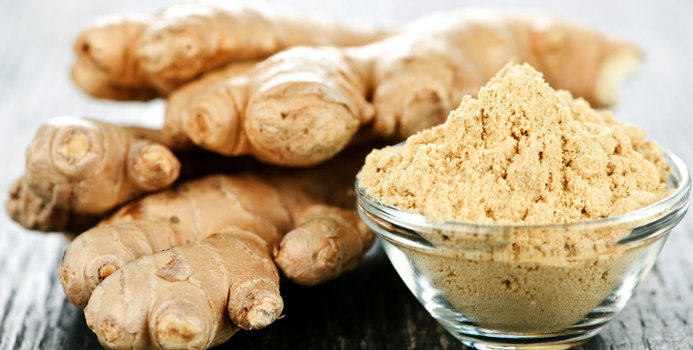Fitness enthusiasts and athletes are becoming aware of the benefits of ginger for soothing tight, sore muscles. Prized for its healing properties in ancient China, India and the Middle East, ginger has long been recognized for its value as an anti-inflammatory remedy. The root, or rhizome, of the ginger plant (zingiber officinale) contains powerful compounds called gingerols that help reduce the tissue inflammation that causes stiff, aching muscles and joints. Recent studies indicate that using ginger as a daily supplement or topical analgesic could relax muscles and reduce pain caused by exercise or strenuous activity.
Research
A study of adults who took 2 grams of ginger as a daily oral supplement showed that ginger reduced exercise-related muscle pain by 23-25%. Participants took ginger over 11 days as a supplement to prevent pain rather than as an acute pain reliever. Ginger may be an effective pain management alternative if you can't tolerate anti-inflammatory medications like ibuprofen or aspirin. The antioxidants in ginger suppress cellular production of nitric oxide, a compound that produces toxic free radicals that promote tissue damage and inflammation. Research also shows that ginger reduces the production of pro-inflammatory compounds in the joints.
Another recent study that focused on topical applications of ginger demonstrated that ginger pastes or plasters could penetrate the skin and have an anti-inflammatory effect on underlying tissues. This study, which showed that a ginger poultice reduced tissue swelling in mice, suggested that similar preparations of ginger could provide the same relief to humans.
Uses
Ginger is available as a whole root or a dried powder. Ginger's anti-inflammatory compounds may also be taken in the form of ginger oil, extract or tea. The recommended dose of ginger for muscle pain is 2-4 grams per day. Daily intake of ginger should not exceed 4 grams, including dietary sources like drinks, salad dressings or desserts. To help prevent muscle aches, take 2 grams each day in capsule form or as a juice. Fresh ginger juice can be prepared in a blender with peeled, chopped ginger root and water. Ginger can be applied to sore muscles after exercise as an oil, paste or compress.
For those who enjoy the flavor of ginger with meals, the root's medicinal benefits can be enjoyed along with its taste. Ginger adds an exotic accent to fish, chicken, beef or tofu. Raw, grated ginger root can be sprinkled over breakfast cereal, simmered with hot water and honey for a homemade tea or mixed with safflower oil for a healthy salad dressing. In the study of exercisers who took daily ginger supplements, raw ginger was shown to be 2% more effective in reducing muscle soreness than heat-treated ginger.
Precautions
Though side effects are rare, ginger may cause an upset stomach, diarrhea, gas or heartburn, especially if taken in doses that exceed the recommended amounts. Consult a medical practitioner before adding ginger supplements to your diet, especially if you take aspirin or other blood-thinning medications regularly.



